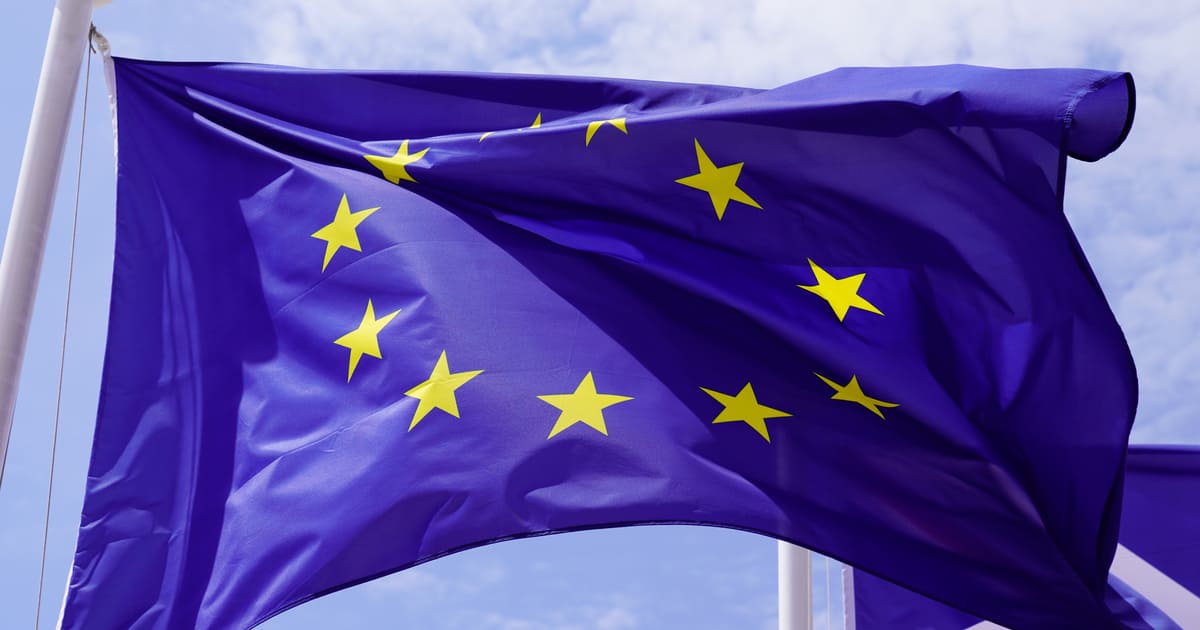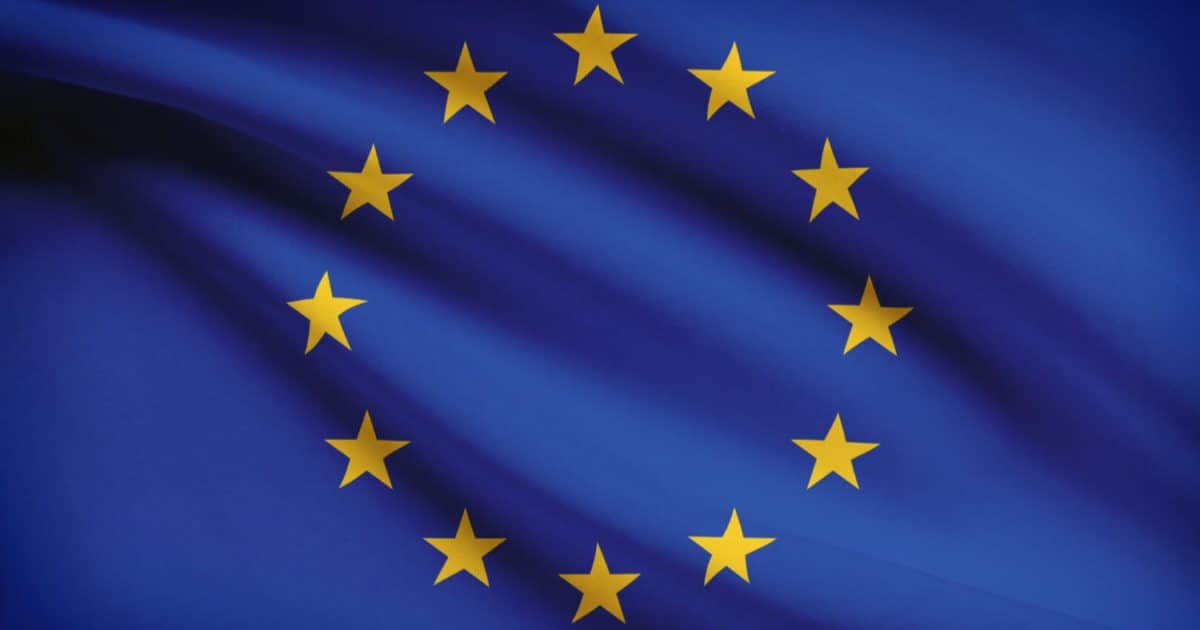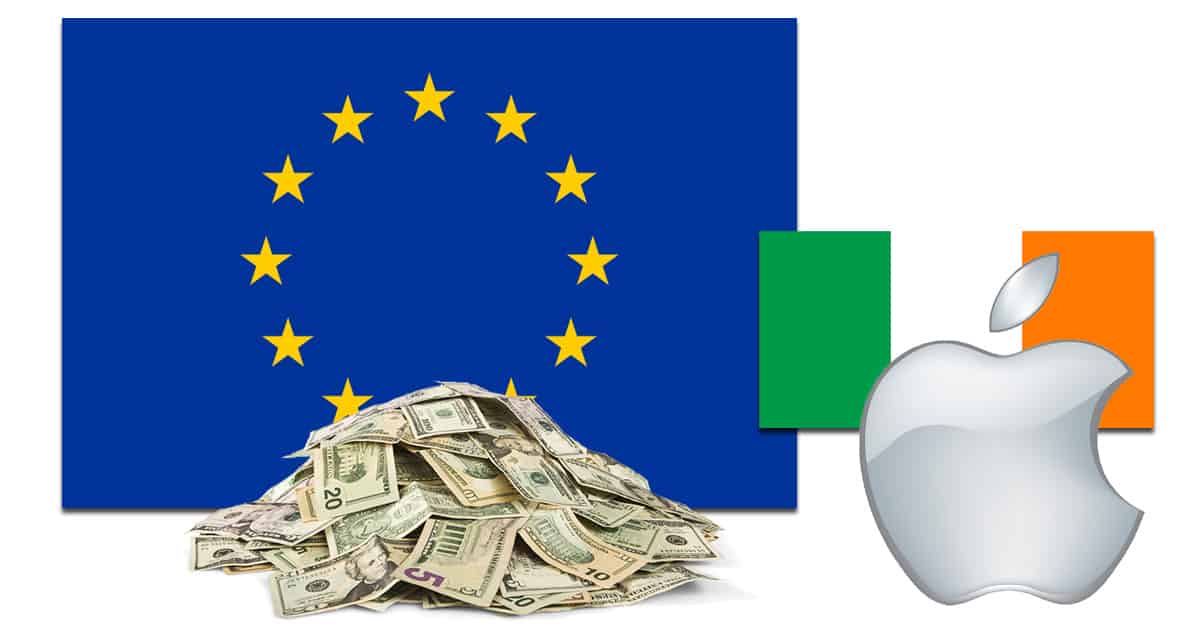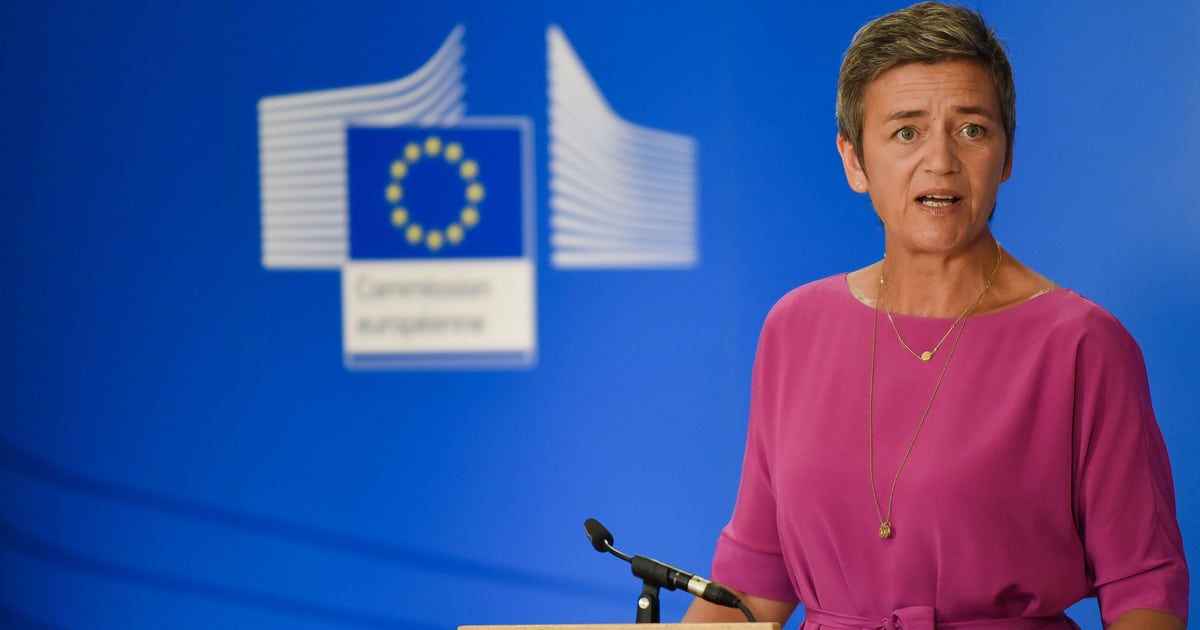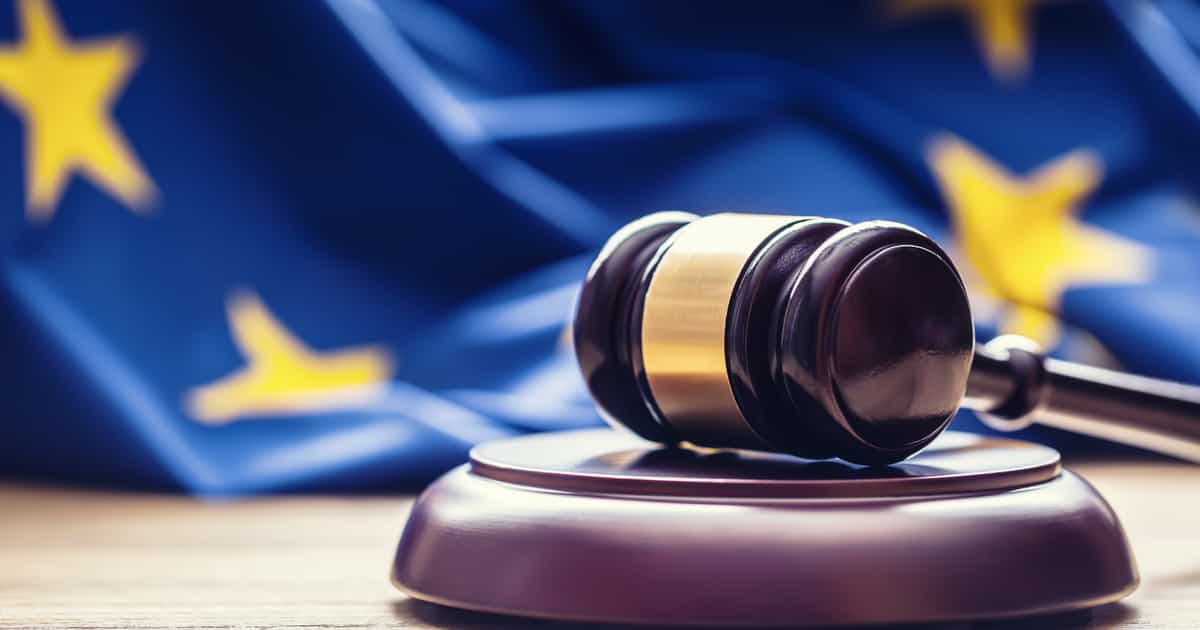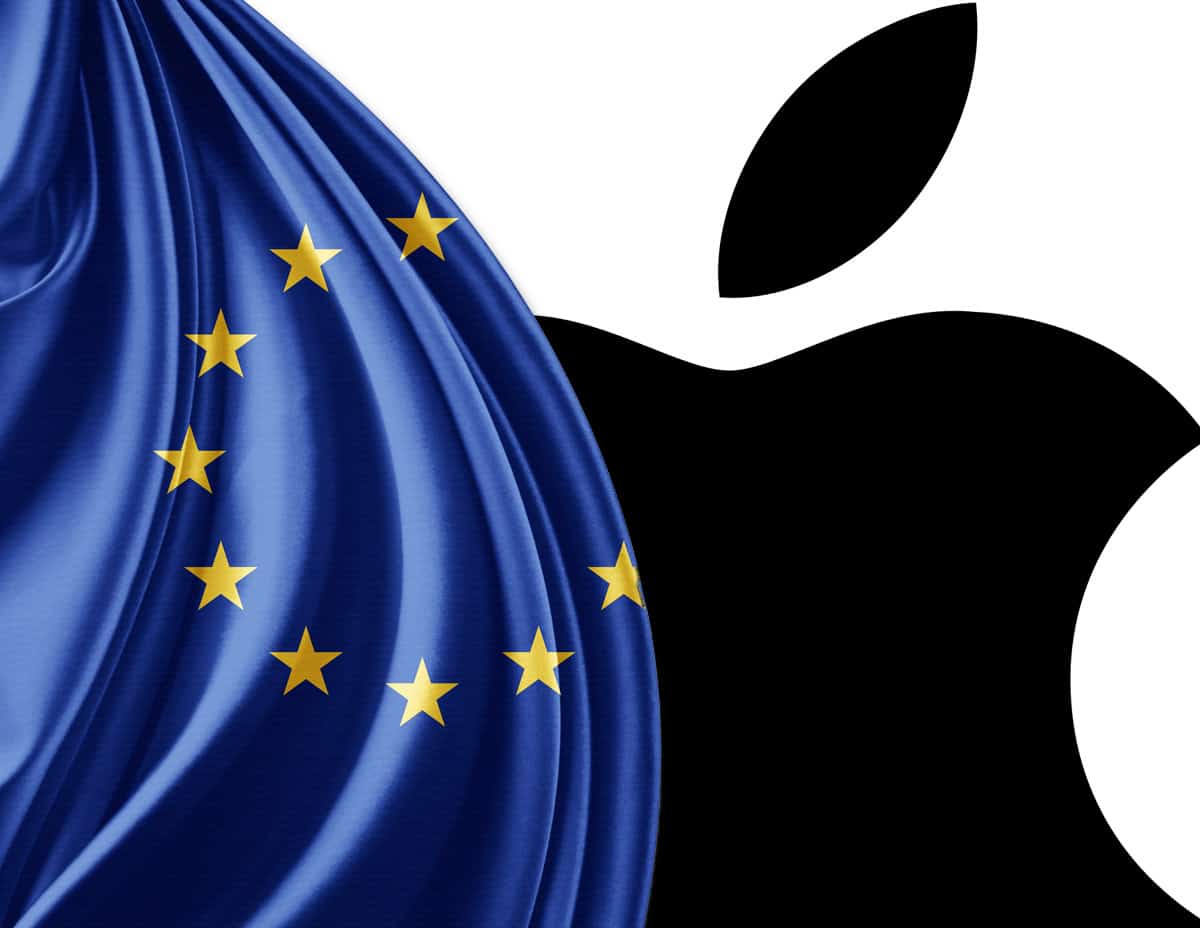The European Union (EU) has given Apple the green light to open up its mobile payments system and let competitors use the iPhone’s NFC.
EU
European Union Passes Common Charger Rule, iPhone Must be USB-C By 2024
The European Union has agreed that USB-C will be the new standard common charger, the iPhone must be USB-C in the EU by 2024.
EU Approves Legislation to Boost Regulation for Apple and Other Big Tech Firms
Landmark EU legislation to regulate Big Tech could have serious implications for Apple’s walled garden in iOS and iPadOS.
EU Looking to Force Apple to Give Developers Access to All Software and Hardware Features
The EU is moving ahead to regulate large tech companies such as Apple, the goal is allowing developers open access to hardware and software.
EU Makes Accusations Toward Apple Concerning iPhone Third-Party NFC Access
Reports are indicating that the EU is accusing Apple of not allowing third-party developers access to NFC tech in the iPhone.
EU Digital Regulator to Tell Elon Musk, ‘There Are Rules’
The most influential EU digital regulator has a message for Elon Musk and Twitter: “There are rules,” new EU laws the company must follow.
EU Countries Agree on Common Approach to U.S. Tech Giants
EU member states agreed on a common approach for rules to be imposed on U.S. tech firms on Thursday. Reuters reported on the move, which could prove to be very significant.
The DMA has a list of dos and don’ts for online gatekeepers – companies that control data and access to their platforms – reinforced by fines of up to 10% of global turnover. The Digital Services Act (DSA) forces the tech giants to do more to tackle illegal content on their platforms, with fines of up to 6% of global turnover for non-compliance. The common position adopted by EU countries follows the main points proposed by Vestager, with some tweaks, with the European Commission as the main enforcer of the new rules despite an initial French proposal to give national watchdogs more power. Negotiations are expected to start next year, with the rules likely to be adopted in 2023.
EU Tech Regulation Not "in Best Interests of Users," Says Tim Cook
Tim Cook has hit out a proposed European law that would force it to allow users to be able to install software not in the App Store.
Judges Used "Contradictory Reasoning" in Apple Tax Case, Says EU
The EU believes that judges used “contradictory reasoning” when granting Apple’s victory in a landmark tax case. The bloc’s determination to overturn the ruling was revealed in documents that emerged Monday, reported Bloomberg News.
The EU said that the lower court improperly conflated Apple’s lack of employees at two Irish units and the company’s level of responsibility for intellectual property on iPhone and iPad sales across Europe. Judges failed to properly weigh the EU’s analysis of the Irish branches and showed “contradictory reasoning” in a separate part of their findings. The EU court “categorically annulled the commission’s case in July and the facts have not changed since then,” Apple said in a statement. “After a thorough review of the facts and the commission’s claims,” the judges were “clear in their determination that Apple has always abided by the law in Ireland, as we do everywhere we operate.” At the heart of the legal arguments are simple questions on where value is created and where it should be taxed.
EU Lays Out New Search Ranking Guidelines For Google And Other Tech Firms
Google, Microsoft, and other tech firms will have to provide more transparency about how they rank online search results. Reuters reported on new EU guidelines forcing the change that were released on Monday.
The guidelines, which take immediate effect, will be followed up next week by the publication of draft rules that could eventually impose further restrictions on the tech sector… The Commission said the guidelines require online platforms to identify the algorithmic parameters that determine ranking and to share them with companies. “These guidelines set the standard for algorithmic ranking transparency and will increase fairness in the online platform economy, which drives innovation and welfare for millions of Europeans,” European Competition Commissioner Margrethe Vestager said in a statement.
Apple Invited to Showdown EU Talks
Apple, Amazon, Alphabet, and Facebook are among the tech companies invited to partake in video talks with the EU next week, Reuters reported. It is to discuss draft rules set to be imposed on them that will be presented by Internal Market Commissioner Thierry Breton to Competition Commissioner Margrethe Vestager on December 9.
The video conference on Nov. 24 will discuss the proposed rules, which are known as the Digital Services Act (DSA) and Digital Markets Act (DMA). Some companies do not think the discussion will lead to changes at this late stage, people close to the companies said on condition of anonymity. The DSA will require tech companies to explain how their algorithms work and also open up their ad archives to regulators and researchers. The DMA targets online gatekeepers with a list of dos, such as sharing data with rivals and regulators, and don’ts, such as not favouring their own services. Breton has invited chief executives from about 20 companies, which also include Microsoft, Booking.com, Expedia, Trivago, DuckDuckGo, a person familiar with the matter said. It was unclear whether CEOs would take part or send senior executives.
EU Antitrust Chief Says Breaking up Big Tech 'Doable', But Warns Against it
Attempts to break up big tech firms, including Apple, by the EU are “doable,” albeit risky according to the bloc’s antitrust chief.
Facebook and Microsoft Take App Store Grievances to EU
Recent grievances against Apple from Facebook and Microsoft could feed into an EU antitrust investigation into the App Store.
Apple EU Tax Case Appeal Ruling Due Next Week
The result of Apple and Ireland’s appeal against an EU tax ruling is expected next week but is likely to be appealed further.
App Store Rejections, Antitrust Updates – TMO Daily Observations 2020-06-17
Charlotte Henry joins host Kelly Guimont to discuss App Store policy and what constitutes a violation, and updates to EU antitrust cases.
EU Lawmakers Push For Common Mobile Charger
Members of the European Parliament overwhelmingly backed a resolution calling for a common charger standard in Europe.
Apple: Enforced iPhone Port Means Higher Prices and Waste
Apple recently spoke out against the EU’s proposal to force smartphone manufacturers to pick one port for everyone.
Apple Calls on EU to Stop Patent Trolls
Apple, working alongside Microsoft, BMW, and others, has urged EU Commissioner Thierry Breton to take action against patent trolls.
EU Commission Turns Its Antitrust Attention on Apple Pay
The European Union Commission has been going after big tech recently, and now it is looking into antitrust concerns about Apple Pay.
Apple's EU Tax Case, Charlotte's New iPhone – TMO Daily Observations 2019-09-19
Charlotte Henry and Andrew Orr join host Kelly Guimont to discuss Apple’s EU tax case as well as tips and apps for Charlotte’s new iPhone.
Apple's Job Footprint, EU Tax Case – TMO Daily Observations 2019-08-16
Bryan Chaffin and Charlotte Henry join host Kelly Guimont to talk about Apple’s job footprint report, and the latest news in the EU tax case.
Google Accused of Unfairly Dominating Job Search Market
23 job search firms wrote to the EU alleging that Google pursued anti-competitive practices with its own job search product.
GDPR: Nearly 90,000 Data Breach Notifications in First Year
There were 89,271 data breach notifications in the first year of GDPR being in place, with fines issued totaling €56 million.
Spotify vs Apple, Journalism vs Spoilers – TMO Daily Observations 2019-05-06
Andrew Orr and Charlotte Henry join host Kelly Guimont to talk about the EU investigation into Apple Music, and journalism versus surprises.


